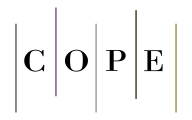Uvod u kritičku analizu biopolitičkog genocidnog rata u pojasu Gaze: Teorijski izazovi i društvene implikacije / Introduction to a Critical Analysis of the Biopolitical Genocidal War in the Gaza Strip: Theoretical Challenges and Social Implications
DOI:
https://doi.org/10.48052/19865244.2025.2.83Keywords:
biopolitics, Foucault, life, body, surveillance, genocidal war, Gaza Strip, humanitarian interventionism, information technologiesAbstract
This paper starts from the assumption that in contemporary society, (bio)politics permeates all aspects of life through the governance of social, political, economic, cultural, and scientific processes. Here, politics is not understood as a noble activity aimed at organizing human life—as it ideally should be—but rather as a retrograde and destructive force, a superpowered tool used to serve the interests of individuals, groups, and states on both local and global levels. Contemporary politics is portrayed as biopolitics, which is difficult to encapsulate within a single, universally accepted cognitive framework. Through vast possibilities and strategies of manipulation and mediation, biopolitics enforces discipline, control, surveillance, and political and social conditioning of individuals and society as a whole. In addition to the subjects, destructive methods, and techniques used by biopolitics through the instrumentalization of human life and the body, as well as the production of wars, crises, pandemics, and recessions, the paper focuses on a critical analysis of the genocidal war in the Gaza Strip, which is the par excellence expression of biopolitical practice and strategy. The work draws on the theoretical framework of contemporary critics of socio-political life (Foucault, Agamben, Beck, Engdahl) and seeks to contribute to the academic discourse on the relationships between power, the body, and control in modern societies. In the critical and analytical review of the new experience of biopolitics, in addition to theoretical challenges, media sources and reports more consistently illustrate the nature and scope of the humanitarian crisis in Gaza in a practical sense. The analysis of biopolitical governance over life in the Gaza Strip reveals a new nature of state biopolitical power and new strategies through which political authorities manage human life, placing the ordinary citizen in a position of watching crimes unfold in real time—without the ability to intervene. The plea of the average person for “humanitarian intervention,” addressed to the “international community,” coupled with political helplessness, industrial violence, mass killings, and destruction using the most advanced weaponry—now equipped with artificial intelligence - consequently creates global instability and regional tension not only in the Middle East. Israel’s intensive implementation of its occupation policy, violations of human rights and the laws of war, the devastation of entire cities within the enclave, ethnic cleansing, and horrific war crimes revive Foucault’s biopolitical principle of exposing one nation to death in order to secure the safety and survival of another.
References
Agamben, G., 2006. Homo sacer: suverena moć i goli život. Zagreb: Arkzin.
Al Jazeera Balkans. Dostupno na: https://balkans.aljazeera.net
Anadolu Agency – Bosanski. Dostupno na: https://www.aa.com.tr/ba
Bajrami, R., 2022. „Duhovno zdravlje, egzistencijalna panika i liječenje pomoću smisla“, Takvim 2022. Priština: Predsjedništvo IZK. str. 81-95.
Bauman, Z., 2017. Moramo se koncentrirati na dugoročne ciljeve. [online] ScheerPost. Dostupno na: https://www.prometej.ba/clanak/prijevodi/zygmunt-bauman-moramo-se-koncentrirati-na-dugorocne-ciljeve-2897
Beck, U., 2001. Pronalaženje političkoga: prilog teoriji refleksivne modernizacije. Zagreb: Jesenski i Turk.
Bek, U., 2001. Rizično društvo: u susret novoj moderni. Beograd: Filip Višnjić.
DropSite News. Dostupno na: https://www.dropsitenews.com
Engdahl, F.W., 2000. Stoljeće rata: anglo-američka naftna politika i novi svjetski poredak. Zagreb: AGM.
Engdahl, F.W., 2005. Sjeme uništenja: geopolitika genetski modificirane hrane i globalno carstvo. Zagreb: Detecta.
France 24. Dostupno na: https://www.france24.com/en/
Fuko, M., 1990. Predavanja (kratak sadržaj) 1970–1982. Prevela: Filipović, F. Novi Sad: Bratstvo Jedinstvo.
Fuko, M., 1997. Nadzirati i kažnjavati: nastanak zatvora. Prevela: Jovanović, A.A. Novi Sad: Sremski Karlovci, Novi Sad.
Fuko, M., 1998. Treba braniti društvo. Novi Sad: Svetovi.
Giddens, E., 1998. Posledice modernosti. Beograd: Filip Višnjić.
Giddens, E., 2005. Odbegli svet. Beograd: Stubovi kulture.
Haralambos, M. i Holborn, M., 2002. Sociologija – teme i perspektive. Zagreb: Golden marketing.
Hardt, M. i Negri, A., 2003. Imperij. Zagreb: Arkzin.
Hedges, C., 2025. The Western Way of Genocide. [online] ScheerPost. Dostupno na: https://scheerpost.com/2025/02/02/chris-hedges-the-western-way-of-genocide/
International Court of Justice. Dostupno na: https://www.icj-cij.org
Jamaluddin, Z. i dr., 2025. „Traumatic injury mortality in the Gaza Strip from Oct 7, 2023, to June 30, 2024: a capture-recapture analysis“, The Lancet, vol. 405, br. 10477, str. 469–477. https://doi.org/10.1016/S0140-6736(24)02678-3
Koljević, B., 2010. Biopolitika i politički subjektivitet. Beograd: Službeni glasnik.
Krivak, M., 2008. Biopolitika: nova politička filozofija. Zagreb: Antibarbarus.
Kuljić, T., 2014. Tanatopolitika: sociološkoistorijska analiza političke upotrebe smrti. Beograd: Čigoja.
Lavić, S., 2018. Zaborav razlike – bosanski prekarijat, „bolonjski“ univerzitet i medijski cinizam. Sarajevo: Dobra knjiga.
Milenković, P. i Marinković, D. (prir.), 2004. Mišel Fuko, 1926–1984, hrestomatija. Novi Sad: Vojvođanska sociološka asocijacija.
N1 Info. Dostupno na: https://n1info.ba
Nancy, J.-L., 2004. Stvaranje svijeta ili mondijalizacija. Zagreb: Jesenski i Turk.
Nasr, S.H., 2001. Susret čovjeka i prirode. Sarajevo: El-Kalem.
OIC Research Centre. Dostupno na: https://una-oic.org
Pavlović, V., 2009. Društveni pokreti i promjene. 3. izd. Beograd: Službeni glasnik, Zavod za udžbenike.
Prometej.ba. Dostupno na: https://www.prometej.ba
Radio Slobodna Evropa. Dostupno na: https://www.slobodnaevropa.org
Repo, J., 2024. „Genocide and the destruction of the means of social reproduction in Gaza“, European Journal of Politics and Gender, vol. XX, br. XX, str. 1-8. https://doi.org/10.1332/25151088Y2024D000000061
Reuters. Dostupno na: https://www.reuters.com
Sofradžija, H., 2015. Hiperpolitika i savremeno društvo: proces tehniziranja svijeta. Sarajevo: Fakultet političkih nauka.
Sorić, M., 2010. Koncepti postmodernističke filozofije. Zadar: vlastita naklada.
Svensen, L.F.H., 2006. Filozofija zla. Beograd: Geopoetika.
The Guardian. Dostupno na: https://www.theguardian.com/europe
Touraine, A., 2007. Kritika modernosti. Zagreb: Politička kultura.
United Nations, 1948. Convention on the Prevention and Punishment of the Crime of Genocide. General Assembly of the United Nations. [online] Dostupno na: https://www.un.org/en/genocideprevention/documents/atrocity-crimes/Doc.1_Convention%20on%20the%20Prevention%20and%20Punishment%20of%20the%20Crime%20of%20Genocide.pdf
United Nations. Dostupno na: https://www.un.org
UNRWA. Dostupno na: https://www.unrwa.org
Voice of America – Bosanski. Dostupno na: https://ba.voanews.com
Vujić, J., 2021. „Simulacija kolektivne tjeskobe i medijske fobo-strategije politike straha“, In Medias Res, vol. 10, br. 19, Zagreb: Centar za filozofiju medija i mediološka istraživanja. str. 3033–3042.
World Health Organization, n.d. Science in 5: SARS-CoV-2 origins. [podcast] Dostupno na: https://www.who.int/podcasts/series/science-in-5/episode--95---sars-cov-2-virus-origins
YouTube. Dostupno na: https://www.youtube.com
Žiga, J., 2011. „Vrijeme (sve)politike“, Pregled – časopis za društvena pitanja, br. 1, LII, Sarajevo: Univerzitet u Sarajevu.
Žiga, J., 2012. Vrijeme (sve)politike: iluzije savremenog ekologizma. Sarajevo: BKZ Preporod.
Downloads
Published
How to Cite
Issue
Section
License
Copyright (c) 2025 Pregled: časopis za društvena pitanja / Periodical for social issues

This work is licensed under a Creative Commons Attribution-NonCommercial 4.0 International License.














